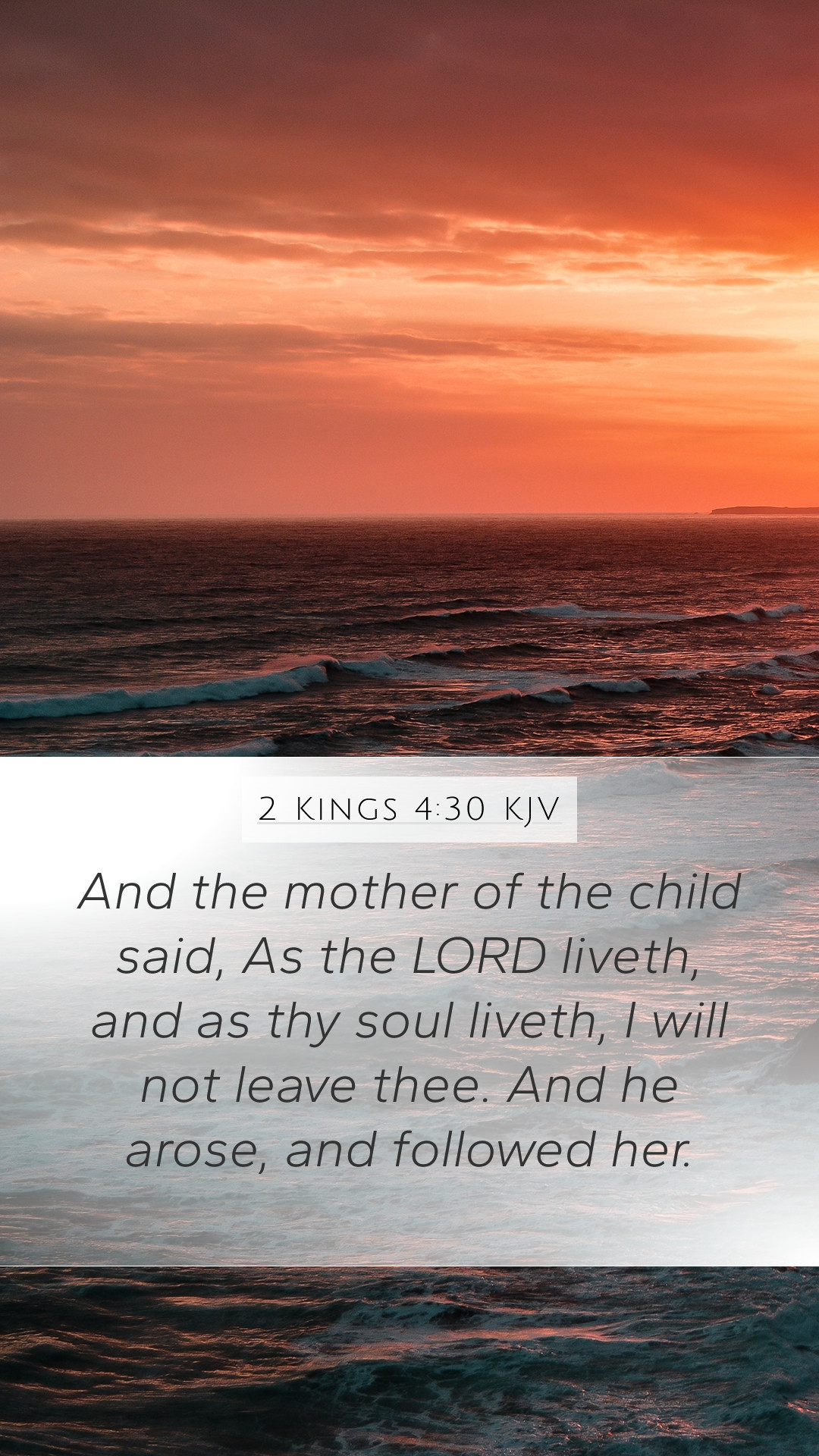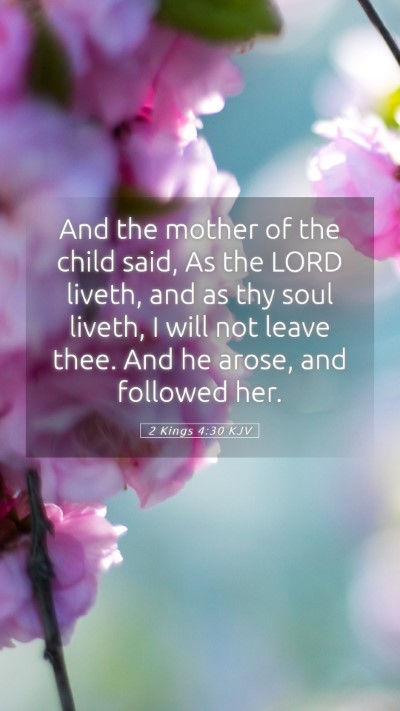Understanding 2 Kings 4:30: A Comprehensive Bible Verse Commentary
The verse 2 Kings 4:30 states:
"And the mother of the child said, As the LORD liveth, and as thy soul liveth, I will not leave thee. And he arose, and followed her."
This verse captures a poignant moment of desperation and determination from the Shunammite woman as she shows her deep faith amid tragedy. Below, we present a thorough exploration of its meaning, incorporating insights from renowned public domain commentaries by Matthew Henry, Albert Barnes, and Adam Clarke.
Verse Meaning and Context
2 Kings 4:30 occurs within the narrative of Elisha's ministry, particularly focusing on his relationship with a notable Shunammite woman who had provided him hospitality. This verse reflects her resolve and faith in the power of God through Elisha during a time of personal crisis.
Key Themes
- Faithfulness: The woman’s declaration of loyalty signifies her unwavering belief in God’s promises.
- Desperation: Her refusal to leave Elisha showcases her pressing need for divine intervention.
- Persistence in Prayer: The act of following the prophet is symbolic of her determination to seek help.
Insights from Commentaries
Matthew Henry’s Commentary
Henry highlights the mother's unyielding faith, stating that her declaration “As the LORD liveth,” demonstrates her appeal to the eternal and infallible nature of God. He also observes that her physical following of Elisha illustrates the spiritual pursuit of grace and mercy in desperate times. This persistence serves as an example to believers of the necessity of tenacious faith when faced with life’s adversities.
Albert Barnes’ Notes
Barnes emphasizes the significance of the Shunammite woman’s faith in God through the prophet Elisha. He interprets her statement as a deep-rooted conviction in God’s living presence and the soul of the prophet. This interaction indicates her spiritual understanding and recognition of Elisha as a mediator of God’s power, reinforcing the importance of intercessors in the believer's journey.
Adam Clarke’s Commentary
Clarke provides a detailed examination of the verse within its cultural context, suggesting that the woman’s insistence on not leaving Elisha symbolizes an acknowledgment of his prophetic role. He asserts that faith often necessitates a physical act of summons and that this moment underscores her heartfelt plea for miracle and restoration, which should inspire believers to actively engage in their faith.
Application and Significance
2 Kings 4:30 invites readers to reflect on the nature of their faith, especially in times of crisis. From a practical standpoint, this verse encourages believers to:
- Embrace persistence in prayer when confronted with challenges.
- Draw strength from community and spiritual leaders during difficulties.
- Maintain unwavering faith in God’s promises as an anchor in times of need.
Cross References
- 1 Kings 17:12-14 - The story of Elijah and the widow.
- 2 Kings 4:18-37 - The miraculous healing of the Shunammite woman's son.
- James 5:16 - The effectual prayer of a righteous person avails much.
Conclusion
In summary, the verse 2 Kings 4:30 serves as a profound reminder of the faith and resilience required in the face of adversity. As modern readers, understanding its context and implications through careful Bible verse interpretations not only enhances our Bible study insights but also equips us for practical application in our lives.
By engaging with Scripture and seeking a deeper understanding of such pivotal verses, we can foster a more meaningful relationship with God through steadfast faith, much like the Shunammite woman's unwavering pursuit of the prophet Elisha.


